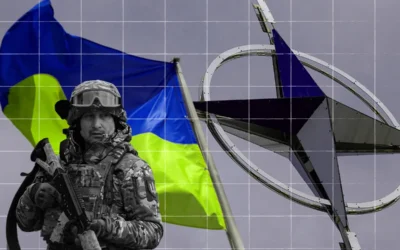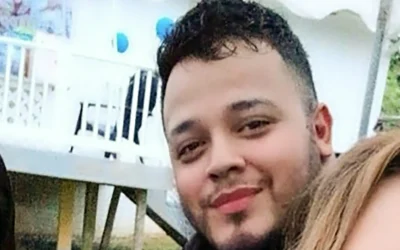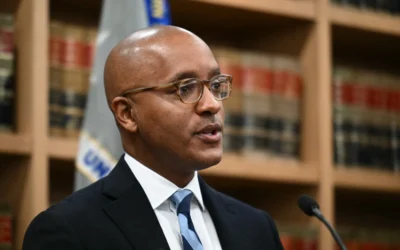Introduction
In a significant revelation that has raised questions about religious freedoms in the United States, Senator Chuck Grassley (R-IA) recently asserted that the FBI’s surveillance and targeting of traditional Catholics is far more extensive than the agency’s Director, Christopher Wray, initially claimed. Grassley, a long-serving member of the Senate Judiciary Committee, has been vocal about his concerns regarding the FBI’s practices under the Biden administration, particularly its dealings with religious communities. This article explores the details of Grassley’s allegations, the implications of the FBI’s actions, and the broader dialogue concerning the intersection of national security and religious liberties.
Background on FBI Surveillance of Catholics
Grassley’s concerns emerged from a series of memos distributed within the FBI that classified certain Catholic groups as potential domestic terrorism threats. These memos reportedly categorized “radical traditionalist Catholics” as individuals who might pose risks due to their religious beliefs and affiliations. The term refers to a subset of Catholics who adhere to longstanding church doctrines and practices, often criticizing contemporary changes within the Church.
Wray’s initial response to Congressional inquiries suggested that these categorizations were isolated incidents. However, subsequent documents reviewed by Grassley indicate a more systemic approach, revealing a network of sources that the FBI allegedly consulted in formulating these memos. Critics argue that such sources may be biased against traditional religious practices, raising concerns about the motivations behind the classification of religious communities as threats.
Grassley’s Findings
Senator Grassley’s investigation has unearthed documents that imply the FBI’s actions were not simply isolated policy decisions but part of a broader trend. According to Grassley, the extent of the FBI’s targeting of these groups is much greater than admitted by FBI officials, suggesting a troubling precedent where the federal agency is engaging in surveillance of particular religious practices.
In October 2022, Grassley referred to a memo that described a Catholic group based in Virginia, saying it should be monitored as a potential ‘threat’. This group reportedly held traditional views on marriage and family, which the FBI’s categorization raised alarms about. Grassley argues that this type of monitoring, especially when it stems from ideological biases, violates the foundational principles of religious freedom enshrined in the Constitution.
The Role of Bias in Surveillance
One of Grassley’s most concerning allegations pertains to the sources that the FBI used to justify its memos. He points out that some of these sources come from groups known for their anti-Catholic sentiment or those whose views do not reflect a comprehensive understanding of the diverse beliefs within the Catholic community. This manipulation of intelligence sources raises questions about the integrity of the investigative process.
In particular, Grassley highlighted that some information in the memos derived from individuals with histories of promoting narratives against traditional religious practices. He fears that this misuse of intelligence could lead to the unfair targeting of individuals and communities based on their faith.
The Broader Implications
The implications of these revelations are profound. At its core, the targeting of Catholics by the FBI raises questions about religious liberty and governmental overreach. For many, being monitored by a federal agency because of their beliefs represents a fundamental infringing of personal freedoms.
The conversations surrounding radical traditionalism within religious circles are often polarized. Advocates emphasize the importance of maintaining orthodox beliefs in a rapidly changing cultural landscape, while critics may view these perspectives as potentially dangerous or extremist. Grassley’s findings may invite greater scrutiny of how law enforcement agencies view such divisions, especially concerning the First Amendment’s guarantees of free exercise of religion.
Political Reactions
Grassley’s assertions have not gone unnoticed in political circles. His colleagues in the GOP have rallied around his findings, expressing their concerns about what they perceive as bias within the FBI. Influential conservative lawmakers are calling for more transparency and accountability regarding the agency’s targeting practices, with some suggesting a comprehensive investigation into the FBI’s operations regarding religious groups.
Democratic representatives have taken a more cautious approach. While many emphasize the importance of preventing domestic extremism, they also recognize the delicacy involved in surveilling religious communities. Lawmakers across the aisle have started discussions about finding a balance between national security and preserving civil liberties, particularly in a diverse society like the United States.
Public Response and Advocacy
The public’s reaction to Grassley’s findings has been a mix of concern and outrage, especially among those in the Catholic community. Many Catholic organizations and advocates for religious freedom have spoken out against the FBI’s monitoring of Catholics, calling it an infringement on their rights. High-profile religious leaders have condemned the practice, asserting that targeting individuals based on their faith is not only unacceptable but un-American.
Catholic advocacy groups have begun mobilizing, calling for legislative measures that protect religious freedoms and hold law enforcement accountable for biased targeting. They argue that all Americans, regardless of their faith, deserve to live without the fear of being surveilled because of their beliefs.
Conclusion
Senator Chuck Grassley’s exposure of the FBI’s alleged surveillance of traditional Catholics signifies a critical juncture in the conversation around faith and civil liberties in the United States. As the discourse around national security becomes increasingly intertwined with religious expression, it will be essential for lawmakers, law enforcement agencies, and the public to engage in thoughtful conversations about the rights guaranteed by the Constitution.
The government must prioritize transparency, accountability, and respect for all individuals’ freedoms. The implications of Grassley’s findings extend beyond the Catholic community; they serve as a warning regarding the potential for abuse of power in the name of security. As America navigates its complex landscape of beliefs and values, maintaining the delicate balance between safeguarding the nation and respecting its citizens’ rights will be paramount.







